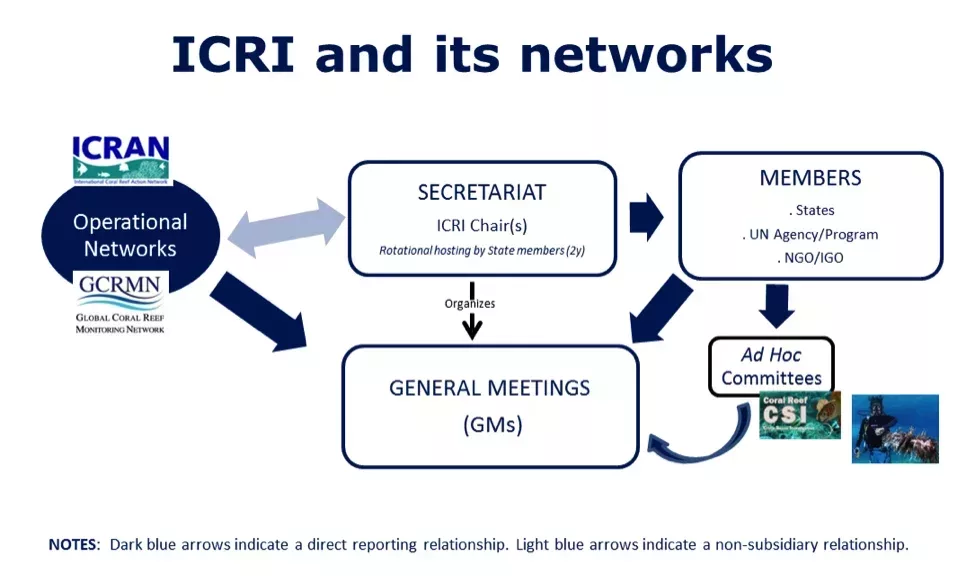The International Coral Reef Initiative (ICRI) is a global partnership between Nations and organizations which strives to preserve coral reefs and related ecosystems around the world.
The Initiative was founded in 1994 by eight governments: Australia, France, Japan, Jamaica, the Philippines, Sweden, the United Kingdom, and the United States of America. It was announced at the First Conference of the Parties of the Convention on Biological Diversity in December 1994, and at the high level segment of the Intersessional Meeting of the U.N. Commission on Sustainable Development in April 1995. ICRI now counts over 100 members.
ICRI emerged out of the recognition that coral reefs and related ecosystems found in tropical and sub-tropical regions are facing serious degradation, primarily due to anthropogenic stresses. Many nations face similar threats to coral reefs and related ecosystems as well as similar management problems. Recognising this, ICRI’s objectives are to:
- Encourage the adoption of best practice in sustainable management of coral reefs
and associated ecosystems - Build capacity
- Raise awareness at all levels on the plight of coral reefs around the world.
ICRI adopted a ‘Call to Action’ and a ‘Framework for Action’ as its foundational documents. Both documents set the four cornerstones of ICRI: Integrated Management; Science; Capacity Building and Review. At the 28th ICRI General Meeting (Belize City), a “Continuing Call to Action” and “Framework for Action 2013” were adopted (these documents renewed the 1995 ‘Call to Action’ and ‘Framework for Action’).
The ICRI Secretariat is hosted for a determined term (usually two years) by State members, on a voluntary basis. The Secretariat progresses ICRI’s objectives through a specific Plan of Action; and organizes General Meetings of Members at least annually. The Secretariat can also choose to organize side events at major international summits and conferences to raise ICRI’s profile and promote its work.
ICRI operates on-ground through its networks and committees, who can organize regional meetings and workshops on specific topics. ICRI State Members may choose to implement ICRI’s objectives through National Coral Reef Initiatives.
The diagram below provides a visual summary of ICRI’s governance arrangements
